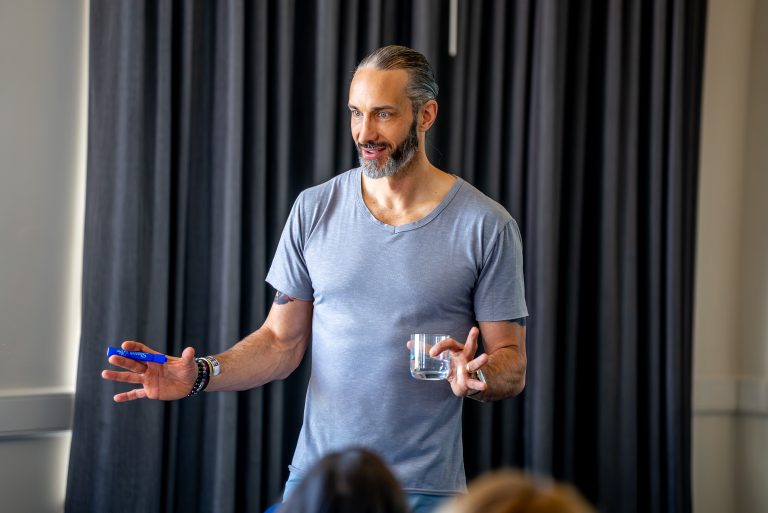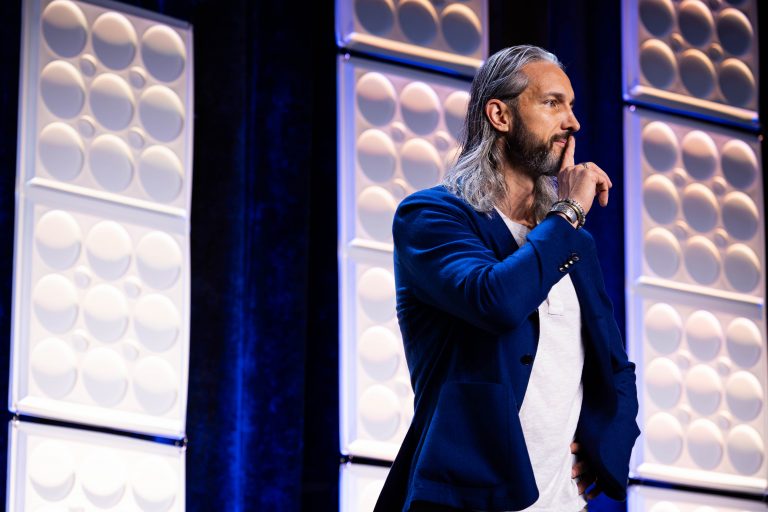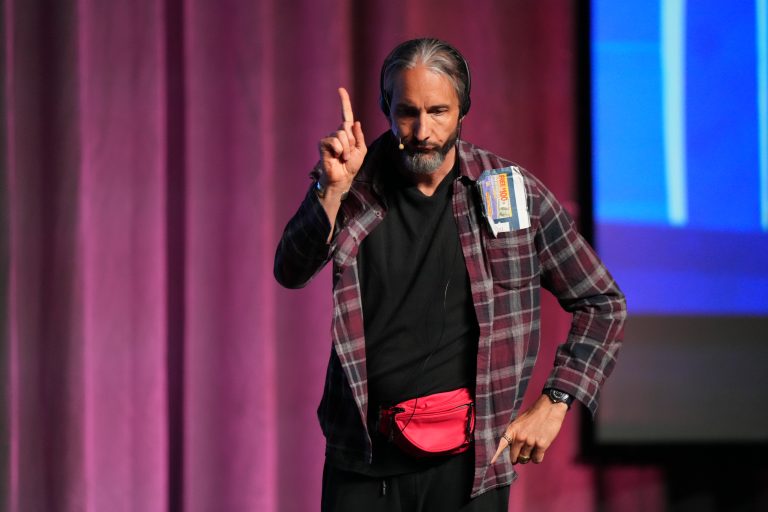“We hold these truths to be self-evident, that all men are created equal…”
This may seem downright sacrilegious, but that phrase about equality in the Declaration of Independence has never been true.
No two human beings have ever been created equal in any sense of the word.
From genes to environment to opportunities to personal preference, there are infinite factors that make us all different.
Don’t get me wrong—I’m certainly not saying that anyone is intrinsically better than anyone. I’m just stating the obvious that ability, development, and effort are all different for each individual. The time we have in a day may be equal, but our energy is not.
Some people are born in third-world countries or extreme poverty. Obviously, their opportunities are different than someone born into a wealthy family.
Some people have a head start with healthier genes than others and therefore have more strength and energy.
A person born with neglectful or abusive parents will likely experience the world completely differently than someone born of loving parents.
But this doesn’t mean that one is a guaranteed factor for success or failure. That depends on how we process emotion, create intention, act, and live out a compelling vision. We are not doomed by our past or current circumstances.Value is subjective.
Value is personal.
If we all valued things the same and had the same abilities (in other words, we were essentially clones), how could innovation exist?
Why would we create?
What would our motivation be?
Where would passion develop?
Would there be any reason for debate?
Differences create tension, and tension can be exciting and lead to new opportunities.
If we all valued things exactly the same, pricing would always be perfect, there would be no premiums on anything we buy. And maybe we wouldn’t need to buy anything since we could all just create the same.
If we were all identical, learning, exchange, and motivation would be limited. Things would be simpler sure, yet devoid of adventure.
We can all agree things are not fair. Things are unfair when there is dishonesty, racism, sexism, ageism, and systematic deception.
The system has failed us.
Unfortunately, equal opportunity does not exist because of:
Political systems.
Political favors.
Corporate collusion.
The Wealth Gap.
Misinformation and deception.
Educational indoctrination.
But is the answer egalitarianism? More government intervention?
That has certainly been the trend over the past century, and it’s only getting worse.
A 2022 Pew Research survey showed that in the U.S., only 40 percent of people between the ages of 18 and 29 view capitalism in a positive light, while 44 percent of them view socialism in a positive light.Socialism is not the answer. Forcefully redistributing wealth removes motivation and punishes the people who create the most value. Furthermore, it would require an ethical government.
In a socialist society, the cry for safety overcomes the yearning for freedom. We choose mediocre security at the expense of expressing our excellence.
Collectivism ultimately destroys stewardship, therefore stunting safety, security, and wealth for all.
If motivation is removed and reward is no longer valid, money escapes to people who don’t know or don’t want to know, how to effectively deal with it.
And capitalism feels more like corporatism and cronyism. Capitalism is filled with backroom deals, old money, and political favor. The government feels like a subsidiary working on behalf of and for companies, doing the bidding of the biggest on the backs of the taxpayers.
Capitalism has become a rigged game for the elites and Wall Street, while socialism is a game rigged for the government.
If we only have the choice of two “isms,” I’ll take capitalism.
But what I’d prefer is free enterprise and free exchange.
What I’d prefer is the system the American Founding Fathers actually intended, one that treats all citizens equally before the law, regardless of wealth, status, or connections.Free enterprise doesn’t mean we’re equal in terms of abilities or preferences. In a free enterprise, results are not equal and wealth is not distributed evenly.
In a free enterprise system, we have to accept that some people will end up with much more than others based on preferences, value, and even luck.
In true free enterprise, we have equality through the same rules.
Equality through truth and transparency.
This, however, is not equal distribution—nor should it be—when it comes to money and resources. Only equality of the rules for everyone. Only the opportunity to create value and make it.
People put forth different effort, choose different objectives, have different challenges, and have access to different opportunities, and relationships will have varying amounts of money. Money is there to represent the value created and as a store of that value for future exchange.
Regardless of what system we live in, the fundamental starting point of changing any system and improving our own lives is personal responsibility.
The first and best response to social inequality is to take personal responsibility for what we can control.
It would be great to have equal rights or equal opportunity. But regardless of the reality, you can always take responsibility for your judgments, actions, and reactions. Regardless of circumstance, you can make you next best choice. You can learn and lean into the next phase, the next step, and your vision.
It all begins with you.
Start by focusing on yourself.
Increase your knowledge.
Get your financial house in order.
Learn to make more money, keep it and then grow it with your Investor DNA.
When you can get to a point beyond survival, and being able to provide for yourself and your family, then you can accelerate your value, support others at a higher level, and be an amazing example of what is possible.
Self.
Self then family.
Self, then family, then tribe.
Your tribe are those you come in contact with regularly. The ones you know and care about.
Add more value to and for your tribe. This will unlock wealth. Who are you investing time with that help you grow, allow you to be of more value, and bring out the best in you?
The world will always have its problems. Thinking we can change the world is a delusion.
Change your world. Impact your tribe. Don’t get distracted before you have enough to live on. Your ability to serve your tribe depends largely on your level of economic independence.
Self
Family
Tribe
Community…
…and then maybe the world. If you skip a step and sacrifice, you will get caught in a losing game.
If we can follow this formula, we can provide far more value to society than any policy that requires tax.
Sure, let’s be real, there are plenty of people that will only take what they can and refuse to support others. Does that mean we should take from everyone to support those less fortunate? Is it worth it?
Or, can we trust ourselves? Can we trust fellow workers, entrepreneurs, and other non-government people to support and help those that are in difficult circumstances, financial turmoil, and require temporary or permanent support?
And if we can’t trust ourselves, how can we possibly trust a government or system to be responsible? The government is made up of people.
The concept of government to protect our rights equally is a great idea. Yet the execution has been the opposite: to take more and more rights away from us in the name of “equality.”
The belief that we should all have equal amounts is an illusion and entitlement. The jealousy of not having what someone else may have can have people cry out to make things fair. To redistribute. To protect.
As we focus more on equal distribution than production, what do we lose? Creativity? Innovation? Abundance?
What will actually help us to create a more free and just society?
Freedom.
The requirement?
Responsibility.
It is time to choose freedom. Freedom to choose our effort, focus on value creation, production, learn to manage our time, develop critical thinking and solving problems.
Instead of complaining about the government or schools or the Wolves of Wall Street, or the news, it is time to live our richest lives.Develop your skills, design your life, and do it without comparison and without compromise. And most importantly, do it from the Producer Paradigm, without the Consumer Condition running the show.
Choose your words carefully.
Assess your emotions and reactions.
Focus on what you can do more than what is out of your control.
Invest in yourself through daily actions, conversations, and with part of your finances.
We are equal in time. At least in this moment right now.
How long we will be here is the unknown. So today is the day, your day.
I compliment you for investing in yourself, taking responsibility and choosing a life of value creation.
To your prosperity.
Ready to Stop Guessing With Your Money?
Most financial advice tells you to save more and spend less. That’s a losing game. Garrett’s free book Killing Sacred Cows reveals why the conventional wisdom is costing you—and what to do instead.
Frequently Asked Questions
Are all people created equal financially?
No — ability, development, effort, and opportunity are wildly different for everyone. Pretending otherwise leads to resentment and entitlement. Equal opportunity matters; equal outcomes are impossible.
Should government enforce financial equality?
No — forced redistribution punishes producers and rewards inaction. Create systems that reward value creation and effort, not policies that penalize success.
What’s the problem with equality as a financial goal?
It assumes everyone should have the same results regardless of effort, skill, or value created. That’s not fairness — it’s a recipe for mediocrity and resentment.
How do I succeed in an unequal world?
Focus on what you control: your skills, your effort, your value creation. Don’t waste energy resenting others’ advantages. Build your own through competency and contribution.



